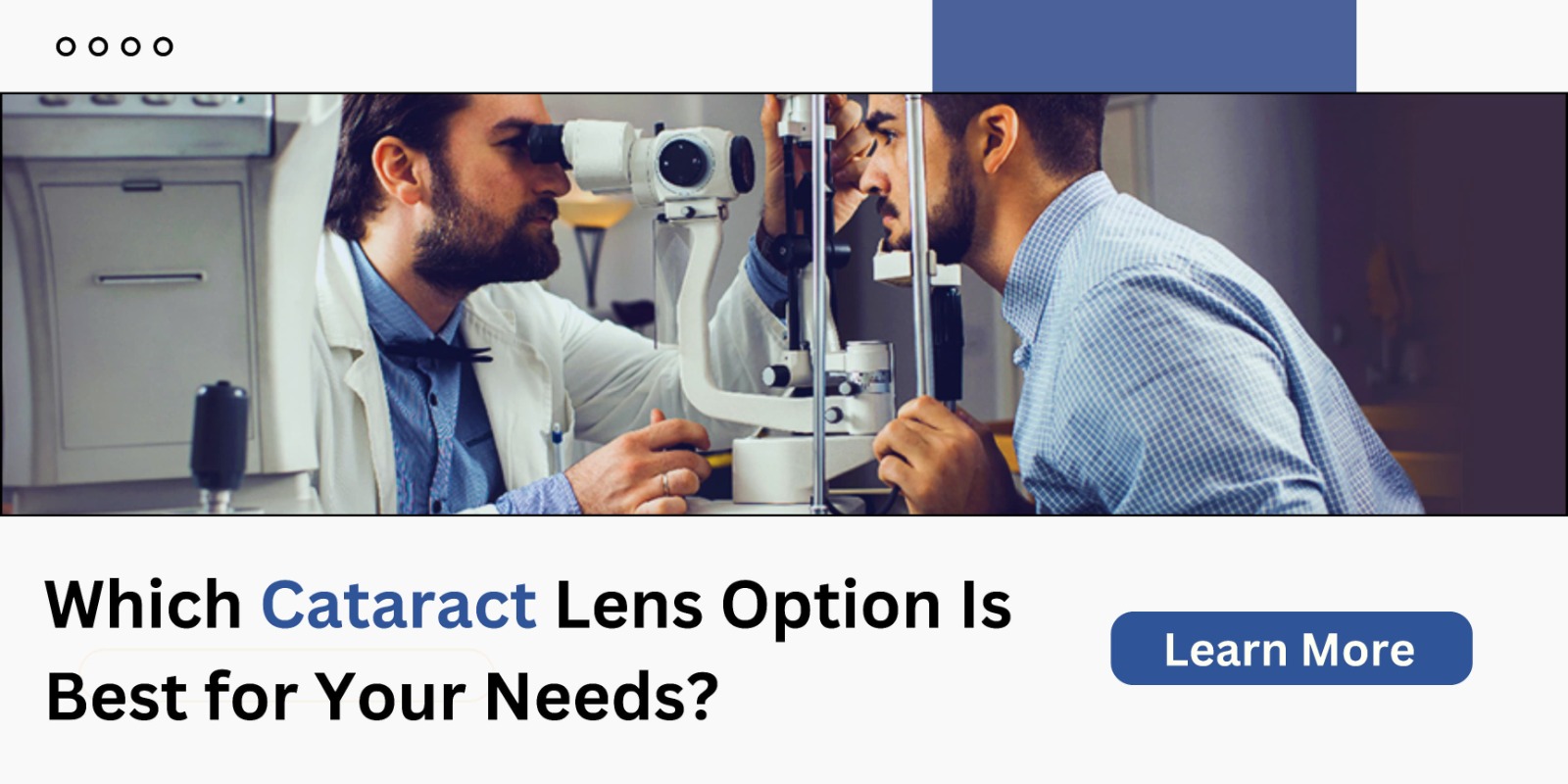Cataracts, a common vision impairment that typically affects older adults, occur when the natural lens of the eye becomes cloudy, leading to blurry or dimmed vision. Fortunately, modern ophthalmology offers a variety of lens options to restore clear vision after cataract surgery. In this article, we’ll explore the different types of cataract lenses available and help you understand which option might be right for you.
What Are Cataract Lenses?
Cataract lenses, also known as intraocular lenses (IOLs), are artificial lenses implanted into the eye during cataract surgery. The goal of these lenses is to replace the cloudy, natural lens with a clear, artificial one, restoring sharp vision. There are several types of IOLs, each designed to address different vision needs and preferences.
Types of Cataract Lenses
⏯ Monofocal Lenses
Monofocal lenses are the most commonly used type of IOL. These lenses have a single focal point, meaning they provide clear vision at one distance: near, intermediate, or far. Most patients who choose monofocal lenses select them to optimise their distance vision, which is ideal for activities like driving. However, they may still need reading glasses or bifocals for close-up tasks.
⏯ Multifocal Lenses
Multifocal lenses are designed to provide clear vision at multiple distances. They have multiple zones or rings, each with a different focal point. This allows for improved vision at both near and far distances, reducing the need for reading glasses or bifocals. Multifocal lenses can be a great option for those who want greater independence from corrective eyewear, but they may take some time to adjust to and might not be suitable for everyone.
⏯ Accommodative Lenses
Accommodative lenses are designed to mimic the eye’s natural focusing ability. These lenses are flexible and shift position within the eye, allowing them to focus on different distances. They offer a more natural vision experience and can reduce the need for glasses. Accommodative lenses are particularly beneficial for patients who want to enhance their near and distance vision without frequent adjustments.
⏯ Toric Lenses
Toric lenses are specialised IOLs designed to correct astigmatism, a condition where the cornea or lens is irregularly shaped, causing blurred vision. These lenses have different powers in different meridians to counteract the effects of astigmatism. If you have significant astigmatism, toric lenses can provide clearer vision and reduce dependence on corrective lenses.
Choosing the Right Cataract Lens
Selecting the right cataract lens depends on various factors, including your vision needs, lifestyle, and any pre-existing eye conditions. Here are some key considerations to help you make an informed decision:
➽ Lifestyle and Visual Needs
Think about your daily activities and visual requirements. If you spend a lot of time reading or using a computer, multifocal or accommodative lenses might be more suitable. If you primarily need improved distance vision, monofocal lenses could be the best option.
➽ Eye Health
Your overall eye health and any additional conditions, such as astigmatism, play a role in determining the best lens for you. Discuss these factors with your ophthalmologist to understand how they might influence your lens choice.
➽ Budget and Insurance
Some advanced lens options, such as multifocal and accommodative lenses, may come with a higher cost. It’s essential to consider your budget and check with your insurance provider to understand what is covered under your plan.
➽ Consultation with Your Ophthalmologist
The most crucial step in choosing the right cataract lens, especially when seeking cataract treatment in Ambala, is to consult with your ophthalmologist. They will assess your specific needs, discuss the advantages and disadvantages of each lens type, and recommend the option that aligns with your vision goals.
Conclusion
Understanding the various cataract lens options available can empower you to make an informed decision about your eye health. Monofocal, multifocal, accommodative, and toric lenses each offer unique benefits tailored to different visual needs. By considering your lifestyle, eye health, and budget, and consulting with your ophthalmologist, Dr. P.C.Sharma at Dr. PC Sharma Eye Hospital , you can choose the lens that will best enhance your vision and quality of life. For personalised advice and to schedule a consultation, call us at +919896081381.

